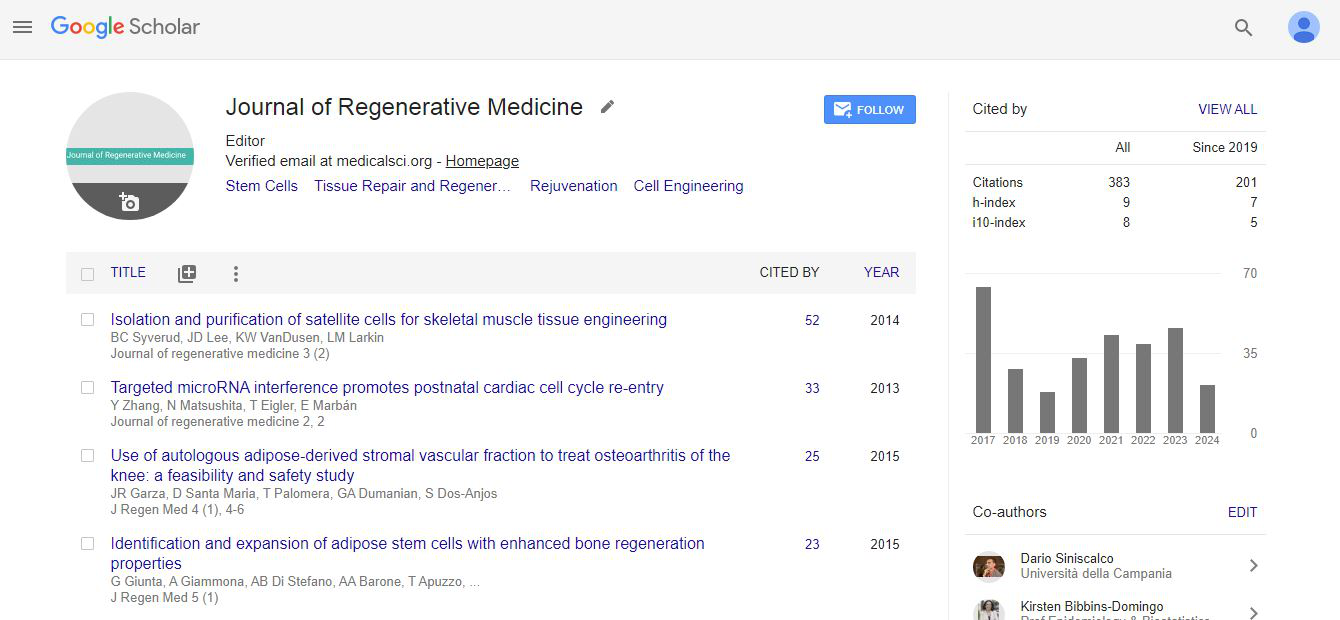Review Article, J Regen Med Vol: 6 Issue: 1
TGF-β Signaling in Brain Scarring after Ischemic Stroke
Zucha MA1*, Gofir A2 and Astari P3
1Department of Obstetrics and Gynecology, Univeristas Gadjah Mada, Yogyakarta, Indonesia
2Department of Neurology, Universitas Gadjah Mada, Yogyakarta, Indonesia
3Faculty of Medicine, Universitas Gadjah Mada, Yogyakarta, Indonesia
*Corresponding author : Dr. Muhammad Ary Zucha
Department of Obstetrics and Gynecology, Univeristas Gadjah Mada, Yogyakarta –Indonesia
Tel: +6274560300
E-mail: oru.sardjito@yahoo.com
Received: March 13, 2017 Accepted: April 06, 2017 Published: April 11, 2017
Citation: Zucha MA, Gofir A, Astari P (2017) TGF-β Signaling in Brain Scarring after Ischemic Stroke. J Regen Med 6:1. doi: 10.4172/2325-9620.1000132
Abstract
Excessive scarring formation in ischemic core may alter structure and function of the brain. Recent evidence found that soon after ischemic stimuli, neurovascular unit is lost and followed by recruitment of pericytes. However, the clear mechanism of the healing response is still a debate. We review the underlying mechanism of focal brain fibrosis and pericytes recruitment through TGF-β signaling in ischemic core. Moreover, TGF-β regulation to promote proliferation of vascular stromal cells and surrounding glial cells that appear in scar formation is also discussed. In this article, we review the possibility of TGF-β signaling as important regulator in Endothelial-to-mesenchymal transition (EndMT) in brain scarring, thereby future application of TGF-β inhibitor may benefit stroke patients to improve their recovery after ischemic stroke attack.
 Spanish
Spanish  Chinese
Chinese  Russian
Russian  German
German  French
French  Japanese
Japanese  Portuguese
Portuguese  Hindi
Hindi 